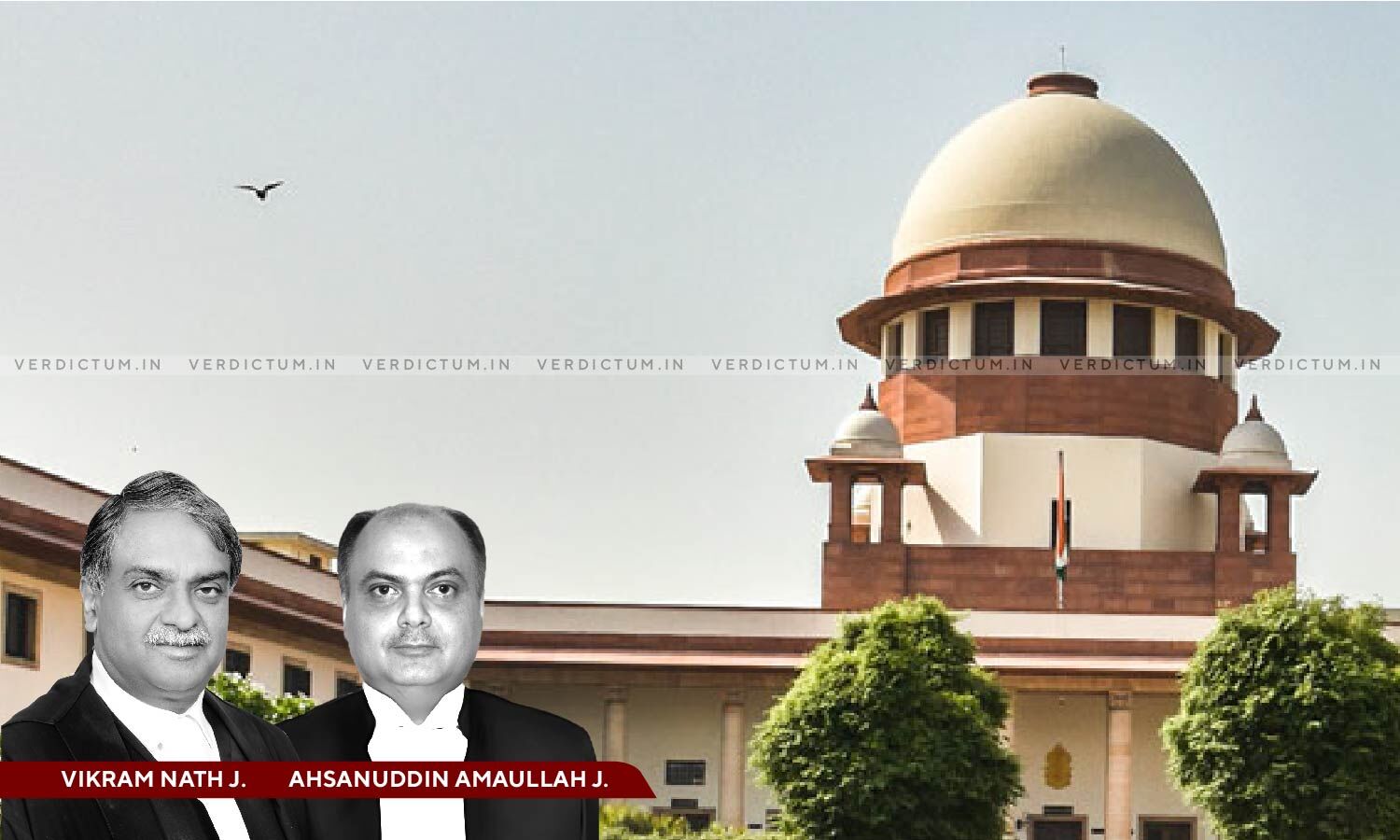NCLT Can Refuse To Approve Resolution Plan Only When It Does Not Meet Requirements U/S 31(1) IBC: Supreme Court

The Supreme Court observed that National Company Law Tribunal [NCLT] can refuse to approve Resolution Plan only when it does not meet the requirement laid down under Section 31(1) Insolvency and Bankruptcy Code, 2016 [IBC].
The Court observed thus in an appeal filed by a company under Section 62 IBC against the judgment of the NCLAT (National Company Law Appellate Tribunal) which had upheld the order of the Adjudicating Authority (NCLT).
The two-Judge Bench comprising Justice Vikram Nath and Justice Ahsanuddin Amanullah held, “It is worthwhile to note that the Adjudicating Authority has jurisdiction only under Section 31(2) of the Code, which gives power not to approve only when the Resolution Plan does not meet the requirement laid down under Section 31(1) of the Code, for which a reasoned order is required to be passed. We may state that the NCLT’s jurisdiction and powers as the Adjudicating Authority under the Code, flow only from the Code and the Regulations thereunder."
The Bench added that the recording of reasons, and not just reasons but cogent reasons, for orders is a duty on Courts and Tribunals.
Senior Advocate Shyam Divan appeared for the appellant while Solicitor General Tushar Mehta and Additional Solicitor General Balbir Singh assisted the Court.
Factual Background -
The application seeking approval of a Resolution Plan for ACIL Limited (Corporate Debtor) was kept in abeyance while directing the Official Liquidator (OL) to carry out a revaluation of the assets of the Corporate Debtor and to provide exact figures/value of the assets and exact valuation details. ACIL was a manufacturer of precision engineering and automobile components. An application filed by IDBI Bank and the respondent was appointed as the Interim Resolution Professional (IRP) and was subsequently confirmed as the Resolution Professional (RP) by the NCLT. The amount of admitted claim in the Corporate Insolvency Resolution Process (CIRP) was Rs. 1782 crores.
The final Resolution Plan was submitted in which the financial proposal/total pay-out was increased and the same was approved by the CoC by a majority of 88.56% votes and the RP moved Approval Application under Sections 30(6)4 and 315 of the IBC seeking approval of the Resolution plan before the Adjudicating Authority-NCLT. In terms of the Resolution Plan, for which approval was being sought, ACIL got the benefit of carrying forward its losses in terms of Section 796 of the Income Tax Act, 1961 which ultimately resulted in the order, by which the approval of the Resolution Plan was kept in abeyance and the OL was directed to provide exact figures/value of assets. The same was carried in appeal under Section 617 of IBC by the appellant before the NCLAT which was dismissed, thereby upholding the order of the NCLT, which was challenged.
The Supreme Court in the above regard noted, “In the case at hand, we find that there was no occasion before the Adjudicating Authority-NCLT to be swayed only on the per se ground that the hair-cut would be about 94.25% and that it was not convinced that the fair value of the assets have been projected in proper manner as the bid of the appellant was very close to the fair value of the assets of ACIL. Ordering revaluation of the assets, by the OL, Ministry of Corporate Affairs, Government of India, in-charge of the particular area, cannot be justified.”
The Court said that it is for the FC(s) who constitute the CoC to take a call, one way or the other and that the Adjudicating Authority has jurisdiction only under Section 31(2) of IBC, which gives power not to approve only when the Resolution Plan does not meet the requirement laid down under Section 31(1), for which a reasoned order is required to be passed.
“We may state that the NCLT’s jurisdiction and powers as the Adjudicating Authority under the Code, flow only from the Code and the Regulations thereunder. … Under the circumstances, while this Court could have adopted the course of remanding the matter back to the NCLT for fresh/de novo consideration, but being conscious of the fact that such course would impede quick resolution as the CIRP is in a stalemate right from 01.09.2021 and after having applied our minds to the factual aspects also, we do not find that remand for consideration afresh, now, would serve the purpose of justice or aid the objects of the Code”, further observed the Court.
Before parting with the judgment, the Court also noted that while certainty in law and legal principles is the obvious aim, the law is to be applied in the context of the facts. It said that if a matter where the facts are stark comes to light, the same would have to necessarily be dealt with by the NCLT within the four corners of the Code itself, having due regard to the extant circumstances and hence, it is for the NCLT to exercise power strictly within the domain permitted by the IBC.
Accordingly, the Apex Court allowed the appeal and set aside the orders of NCLT and NCLAT.
Cause Title- Ramkrishna Forgings Limited v. Ravindra Loonkar, Resolution Profession of ACIL Limited & Anr. (Neutral Citation: 2023 INSC 1013)


